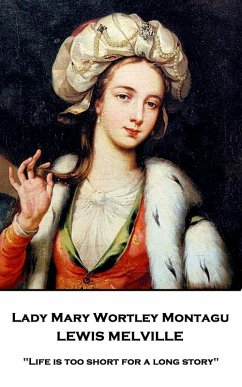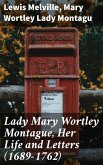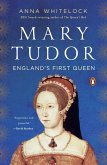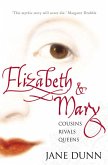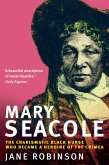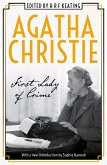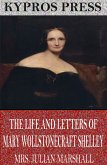Lady Mary Wortley Montagu was born on 26th May 1689 to, the soon to be titled, Earl of Kingston and Mary (Fielding) Pierrepoint. At age 3 Mary's mother died and so her Grandmother became responsible for her upbringing in her early years.
Unfortunately, a few years later, when Mary was 9, her grandmother died and so she went back to live with her father at Thoresby Hall, in Nottinghamshire. Women were not formally educated at this time so Mary educated herself in her father's library, teaching herself Latin and devouring many classical texts. She was expected to attend to several of her father's needs however, including presiding over his dinner table where she became a sort of 'good luck charm' for many of his influential guests.
During her teenage years, her true character began to reveal itself. She had already written several volumes of poetry and was intent on challenging social attitudes towards women which stifled their intellectual and social growth.
Defying her father's wishes, she eloped in August 1712, to marry Edward Wortley Montagu. The following year she gave birth to a boy. Unfortunately, her husband, like her father was possessive and jealous. The marriage would not be as successful as she hoped.
Now further tragedy was to strike. Her brother, only 20 years old, contracted and died from smallpox. Mary herself was to catch the disease two years later. Her survival led to her interest in the Turkish procedure of inoculating against the disease by introducing a small amount of the virus in order to build the body's immunity to the disease. She used this method with both of her children and encouraged its' widespread use in London despite resistance and scepticism by British doctors and prevailing medical opinion.
In 1714 Edward Montagu was appointed to the Treasury which allowed Mary to shine at court. Her charm, wit and beauty was appreciated by George I, the Prince of Wales and many other influential and important London figures who soon became friends.
Mary also met the famed poet Alexander Pope who was smitten with her beauty, elegance and wit. Although these feelings were not reciprocated, the two of them did correspond frequently.
Her husband was next appointed as Ambassador to Istanbul (then called Constantinople), for several years. She also gave birth to her daughter, Mary at this time and continued to develop her flamboyant style sporting Turkish inspired clothes which she wore back in the UK contributing further to her distinctive appearance and aristocratic eccentricity.
Her voyage home together with her other travels resulted in her writing sparkling prose in the form of Letters from Turkey. Although at the time many were circulated in manuscript form, as per her wishes, they were not published until a year after her death.
Her letters to Pope were fewer now, although they provide part of the Embassy Letters for which she is so well known. Their subsequent estrangement and enmity now spilled over as each feuded with the other in clever and entertaining poems and publications.
Mary understood that being a woman gave her a unique perspective, allowing her greater access to many places and customs barred to men. As she noted: "You will perhaps be surpriz'd at an Account so different from what you have been entertaind with by the common Voyage-writers who are very fond of speaking of what they don't know".
In 1736, Mary met and fell in love with Francesco Algarotti. By 1739, besotted, she arranged to live with him in Italy, telling her husband and friends she needed to go abroad for her health. Their relationship fell apart in 1741 and Mary would now spend most of her remaining years travelling through Italy and France, putting down roots in several cities.
In 1761, hearing that her husband had died, she returned home to England. She arrived in London in January 1762. It was to be her final journey.
Lady Mary Wortley Montagu died on 21st August 1762 in London.
Unfortunately, a few years later, when Mary was 9, her grandmother died and so she went back to live with her father at Thoresby Hall, in Nottinghamshire. Women were not formally educated at this time so Mary educated herself in her father's library, teaching herself Latin and devouring many classical texts. She was expected to attend to several of her father's needs however, including presiding over his dinner table where she became a sort of 'good luck charm' for many of his influential guests.
During her teenage years, her true character began to reveal itself. She had already written several volumes of poetry and was intent on challenging social attitudes towards women which stifled their intellectual and social growth.
Defying her father's wishes, she eloped in August 1712, to marry Edward Wortley Montagu. The following year she gave birth to a boy. Unfortunately, her husband, like her father was possessive and jealous. The marriage would not be as successful as she hoped.
Now further tragedy was to strike. Her brother, only 20 years old, contracted and died from smallpox. Mary herself was to catch the disease two years later. Her survival led to her interest in the Turkish procedure of inoculating against the disease by introducing a small amount of the virus in order to build the body's immunity to the disease. She used this method with both of her children and encouraged its' widespread use in London despite resistance and scepticism by British doctors and prevailing medical opinion.
In 1714 Edward Montagu was appointed to the Treasury which allowed Mary to shine at court. Her charm, wit and beauty was appreciated by George I, the Prince of Wales and many other influential and important London figures who soon became friends.
Mary also met the famed poet Alexander Pope who was smitten with her beauty, elegance and wit. Although these feelings were not reciprocated, the two of them did correspond frequently.
Her husband was next appointed as Ambassador to Istanbul (then called Constantinople), for several years. She also gave birth to her daughter, Mary at this time and continued to develop her flamboyant style sporting Turkish inspired clothes which she wore back in the UK contributing further to her distinctive appearance and aristocratic eccentricity.
Her voyage home together with her other travels resulted in her writing sparkling prose in the form of Letters from Turkey. Although at the time many were circulated in manuscript form, as per her wishes, they were not published until a year after her death.
Her letters to Pope were fewer now, although they provide part of the Embassy Letters for which she is so well known. Their subsequent estrangement and enmity now spilled over as each feuded with the other in clever and entertaining poems and publications.
Mary understood that being a woman gave her a unique perspective, allowing her greater access to many places and customs barred to men. As she noted: "You will perhaps be surpriz'd at an Account so different from what you have been entertaind with by the common Voyage-writers who are very fond of speaking of what they don't know".
In 1736, Mary met and fell in love with Francesco Algarotti. By 1739, besotted, she arranged to live with him in Italy, telling her husband and friends she needed to go abroad for her health. Their relationship fell apart in 1741 and Mary would now spend most of her remaining years travelling through Italy and France, putting down roots in several cities.
In 1761, hearing that her husband had died, she returned home to England. She arrived in London in January 1762. It was to be her final journey.
Lady Mary Wortley Montagu died on 21st August 1762 in London.
Dieser Download kann aus rechtlichen Gründen nur mit Rechnungsadresse in D ausgeliefert werden.

